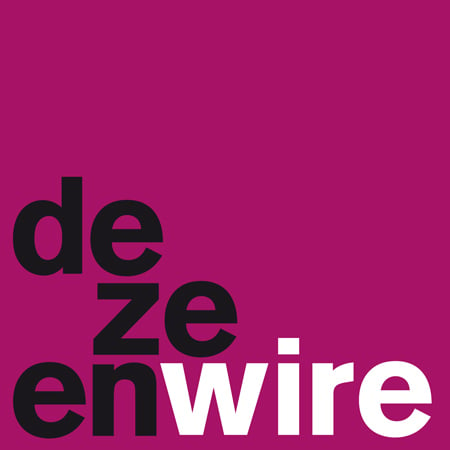Dezeen Wire: British manufacturer Dyson has expressed disappointment about the lack of protection offered to British designers following the loss of a design rights case against Chinese-owned Vax, who Dyson claims have copied one of their popular models.
Image showing the Dyson DC02 and Vax Air vacuum cleaner: courtesy of Dyson
Dyson recently won a similar case in France against the same company but British courts failed to find fault with the similarities between Dyson's DC02 and Vax's machine.
Dyson founder James Dyson added: "We’ve invested decades, not to mention millions, in creating better technology. And sadly we waste millions more in cases like this. We need to better protect British design."
James Dyson launched his first vacuum cleaner without a bag in the 1980s. See all our stories about Dyson here and listen to our interview with him here.
Below is a press release issued by Dyson earlier today:
Dyson design wins in France but loses in Britain
Dyson has lost its design rights case against Chinese-owned Vax (part of TTI). British courts failed to find fault with the Chinese conglomerate aping the appearance of Dyson’s iconic DC02 cleaner, bypassing inventiveness in favour of imitation, yet in France Dyson won its hard fought design case against the same firm (TTI).
French courts ruled that TTI’s Dirt Devil had unfairly copied Dyson’s overall look; Dirt Devil is Vax’s sister brand. French law rules that copying a distinctive design is illegal because it creates confusion for consumers and is unfair competition. The UK does not have the same supportive legal framework.
James Dyson: “By copying our design, Vax has attempted to ride our coattails, crudely cashing-in on the success we’ve built on better engineering. We’ve invested decades, not to mention millions, in creating better technology. And sadly we waste millions more in cases like this. We need to better protect British design”.
Iconic British Design: Dyson’s DC02 was engineered in the UK in 1994. Dyson’s first cylinder machine, its distinctive appearance caused it to be noticed across the world: examples can even be found in New York’s Museum of Modern Art and the San Francisco Museum of Modern Art.
The Vax Mach Zen Air was launched in 2009. Whilst Vax claims to be an “iconic British company”, its latest financial results suggest otherwise, showing all shares to be owned by the Chinese company TTI, the owner of other vacuum cleaner brands Hoover and Dirt Devil. The company’s 2010 results also appear to reveal that no corporation tax was paid in the UK and only £149,000 was paid on overseas earnings. 88% of Dyson’s taxes are paid to the British Exchequer – £50 million in 2010.
Imitation – far from flattering: Dyson has recently won an unfair competition case against Dirt Devil in France and is waiting for the handing down of a decision of the Dutch court of Appeals in the Netherlands. However, Dyson continues to battle with Chinese manufacturers manufacturing copies of the Dyson Air Multiplier fan.
Further background:
In 2006 Dyson succeeded in its claim against Qualtex for selling vacuum cleaner parts that infringed Dyson’s design rights. Qualtex was found to have copied the visual design of some of Dyson’s spare parts. Damages were donated to London’s Royal College of Art to help young designers protect their designs.
As the second highest UK-filer of UK patents after Rolls Royce (2009), Dyson continues to invest millions in developing new technology every year. Bucking the trend, Dyson is recruiting during recession, growing its UK engineering team to 700.
84% of Dyson machines are sold outside of the UK – and Dyson is market leader in the UK, US, Australia, New Zealand, Western Europe and Canada.
Back to Dezeenwire »
Back to Dezeen »

